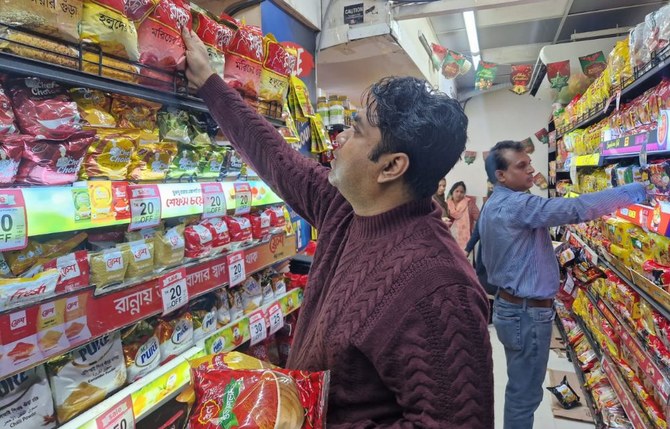DHAKA: Saudi Arabia is a growing export destination for Bangladeshi spices, with the country’s producers crediting the growth to improved product quality and the Bangladeshi diaspora in the Kingdom.
Bangladesh exported more than $17 million worth of spices to Gulf countries between July and November this year, more than half of which had gone to Saudi Arabia, according to data from the Export Promotion Bureau.
“Saudi Arabia is our top export destination in the Gulf region. Next to the Kingdom, there is the UAE, Jordan and Oman,” Mohammad Sazzadul Karim, head of export at leading food company BD Food, told Arab News.
“In Saudi Arabia, we are noticing an increasing demand … all of our consumer goods producers have been producing better quality products in recent years. Our spices are penetrating into the Gulf markets, beating the Indian spices. It’s a big deal.”
BD Food mainly exports powder forms of turmeric, chili, curry, coriander and cumin, he said, adding that the Bangladeshi diaspora alone makes up a large base of consumers.
More than 2.6 million Bangladeshis live and work in Saudi Arabia, making them the biggest expat worker community in the Kingdom.
“We have a captive market for spices in the Kingdom as the country hosts more than 2.5 million Bangladeshis. Besides, there are a large number of Indian communities over there and both countries have similar food choices.”
The PRAN-RFL Group, one of Bangladesh’s largest conglomerates with a presence in more than 100 countries, said the spice market in the Gulf region has undergone a transformation in recent years.
“One decade ago, our customers were mostly Bangladeshi migrants in the Gulf region. Later on, people from India, Pakistan, Nepal, Sri Lanka, Bhutan and the Philippines started liking our spices,” Kamruzzaman Kamal, the group’s marketing director, told Arab News.
“In spite of the differences in food habits, Saudi locals are also consuming some of our spices. The number of our spice consumers is increasing day by day in Saudi Arabia.”
But to keep the momentum and to boost the spice market potential in the Gulf, Bangladeshi producers must “ensure quality and competitive prices,” said Dr. M.A. Rahim, who heads the department of agricultural science at the Daffodil International University.
“Neighboring India remains one of our main competitors in this sector. So, the government should also provide different policy support to accelerate our spice exports (to the Gulf).”






















